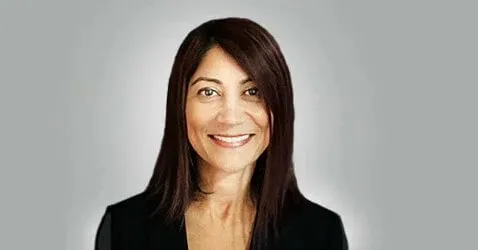10 Careers You Can Pursue With an MSW

A career in social work is rewarding. It involves helping others and bettering communities. The demand for social workers is growing, and careers provide stability and opportunities for advancement. Perhaps most importantly, pursuing a social work career offers a valuable opportunity to make a difference.
Social work professionals help people access services such as food and housing assistance; provide counseling and psychotherapy to individuals, families, and groups; elevate social and health services by organizing wellness events; and participate in legislative processes. While clinical social workers (CSWs) or licensed clinical social workers (LCSWs) can provide therapy, they also refer clients to other resources or services, such as those offered by counselors. Counselors handle the psychological issues their clients suffer from, whereas social workers address social issues that create or amplify mental health issues.
Career Outlook for BSW vs. MSW Degree Holders
According to the Bureau of Labor Statistics, employment for social workers is expected to grow 7% by 2032, which is much faster than the average for all occupations. Regardless of the chosen specialization, there are jobs available for those in the field of social work to make an immediate impact in their communities.
To join the social work workforce, you must earn a bachelor's in social work (BSW) or a master's in social work (MSW). While some entry-level job opportunities are available to those with undergraduate degrees, an MSW opens doors to more specialized roles and higher pay. It is also the first step towards becoming a licensed clinical social worker (LCSW). Licensed clinical social workers can diagnose and treat mental health conditions in both the public and private sectors. LCSWs work with individuals, families, and communities to help clients achieve positive cognitive, emotional, and behavioral health outcomes.
The chart below outlines a few key differences between these programs:
|
Category |
BSW |
MSW |
|
Coursework |
In a bachelor’s degree program, you will learn the foundations of social work through coursework on human behavior, sociology, and social work practice. |
In a master’s degree program, your coursework will focus on your chosen specialization and prepare you for direct practice with supervised practicum hours. |
|
Pay Scale |
All social workers, including those in entry-level positions, earn an average annual salary of $67,130. |
After becoming an LCSW, the average salary is $112,174 for those working 40 hours per week. |
|
Program Length |
Like most bachelor’s degrees, earning a BSW takes 4 years for full-time students, and it includes an internship that provides field experience. |
Most MSW programs can be completed in 3 years, with a 900-hour minimum of supervised practicum experience. |
|
Job Opportunities |
BSW graduates are eligible to apply for entry-level social work positions but are not qualified for clinical settings. |
MSW graduates are on their way to becoming LCSWs who can work in various clinical jobs in the public sector and private practice. |
Complete The Form to Access Your Online MSW Program Guide
10 Careers You Can Pursue With an MSW
According to the National Council on Social Work Education, although social workers are employed in a wide variety of settings, they share “a commitment to promoting social welfare, helping people of all backgrounds overcome their unique challenges, advocating for social and economic justice for all members of the community, and embodying a professional code of ethics.”
If you’re wondering what you can do with a master’s in social work, rest assured that many promising social work careers await. There are specialized types of social workers that serve nearly every population, and no matter which one you choose, you’ll positively impact those you serve.
1. Clinical Social Worker
As a clinical social worker, your career will focus on assessing, diagnosing, and treating mental illnesses and behavioral health concerns. While all other licensed social workers operate under supervision, CSWs can work autonomously. Depending on your practice area, you may work with individuals, families, groups, or a combination of all three.
As a clinical social worker, you will have the opportunity to work in many settings. You may work in private practice or offer mental health services in the public sphere. As an LCSW, you’ll have the unique advantage of combining individual mental health services and your experience in social work, allowing you to help patients or clients thrive in their families and communities.
2. Health Care Social Worker
As an aspiring healthcare social worker, you can enter the field after becoming licensed. According to the BLS, healthcare social workers are trained to “provide individuals, families, and groups with the psychosocial support needed to cope with chronic, acute, or terminal illnesses.”
Healthcare social workers help patients face complex health challenges, providing companionship, expertise, and support. They can advise family caregivers on best practices, educate and counsel patients, manage cases, and refer individuals to other needed services.
Hospitals, hospice care centers, rehabilitation facilities, and nursing homes employ most healthcare social workers. However, some healthcare social workers also work in the public sector to advocate for health in their communities and eliminate barriers to healthcare access.
3. Hospice Social Worker
Hospice social workers are trained to help individuals and their families face the mental, physical, and emotional challenges of end-of-life care. They interface with physicians and nurses to provide compassionate and comprehensive care during a difficult season. Hospice social workers can hold a BSW or MSW and must be licensed in their state.
As a hospice social worker, you may work in a hospice facility or homes of hospice patients. You will spend time in conversation with your patients and their families, helping them face the fears that come with death and dying. You can help families make the most of their time with loved ones, provide comfort and support, and advocate for your patients to get the medical care they need.
4. Mental Health Social Worker
Mental health social workers are trained to assess, diagnose, and treat those who are experiencing mental illness, helping them improve their quality of life. To become a mental health social worker, you must become licensed in your state after earning your MSW.
Mental illnesses can affect individuals’ ability to thrive in their everyday lives. Mental health social workers treat mental, emotional, and behavioral health disorders for individuals or groups, helping them succeed. Mental health social workers work in private practice or the public sector, providing essential care to those struggling with anxiety, depression, personality disorders, and more.
5. Substance Abuse and Addiction Social Worker
Substance abuse and addiction social workers work with populations who are struggling with overuse of substances like alcohol, tobacco, or drugs. To diagnose and treat these addictions, they must earn their LCSW license. Substance abuse is frequently concurrent with mental health disorders, so substance abuse and addiction social workers often work with their clients or patients to treat both simultaneously.
Substance abuse and addiction social workers are employed in both inpatient and outpatient settings, offering care in treatment facilities, hospitals, and private practice therapy. They advocate for their patients to get the long-term care they need, even after leaving a hospital or treatment facility, providing education and intervention to help them overcome and thrive.
6. Family Social Worker
Family social workers play a vital role in their communities by helping families in need and ensuring children are placed in safe and nurturing environments as they grow up. They face a wide variety of challenges, including domestic violence, child welfare, substance abuse, and mental health concerns. They are uniquely trained to operate calmly and effectively when crises arise.
As a family social worker, you’ll assess family situations, provide interventions, build relationships with families, and manage an ongoing casework load. Some family worker jobs are available to those with BSW degrees, but many require an MSW. All family social workers must be licensed in their state. Family social workers can secure jobs in government agencies, schools, nonprofit organizations, and private practice.
7. Child Welfare Social Worker
Child welfare social workers hold similar roles to family social workers, with an emphasis on the safety and well-being of children under the age of 18. They work with families in their communities to provide resources and education, and they are an integral part of finding safe places for children to live should they need to be protected from harm occurring in their homes.
Many child welfare social workers are employed by the Department of Children’s Services (DCS) in their state. Child welfare social workers can begin work after earning a social work degree and becoming licensed in their state. As a child welfare social worker, you will respond to reports of child abuse or neglect, conduct home assessments, remove children from unsafe home situations, attend court hearings to assist in reunification efforts and find both short and long-term care for children whose families are not able to provide the care they need.
8. School Social Worker
School social workers are equipped to help students thrive emotionally, behaviorally, and academically at school. As trained mental health professionals, they can address mental health and behavioral concerns and offer academic support to students who are struggling in the classroom. School social workers also meet with teachers, parents, and administrators, collaborating to help improve student success.
Before becoming a school social worker, you must earn your BSW or MSW and become licensed in your state. School districts hire most school social workers directly to improve student outcomes in a particular school or across the entire district.
9. Corrections Social Worker
Corrections social workers typically work with incarcerated individuals in correctional facilities or juvenile detention centers. In some cases, they work with law enforcement agencies to offer programs that serve as an alternative to incarceration. You’ll need an MSW degree and state licensure in many states to secure employment as a corrections social worker.
In both situations, corrections social workers provide individual and group counseling and support designed to improve outcomes after incarceration. This type of counseling is designed to reduce the likelihood of repeat offenses, address any untreated mental health conditions, behavioral disorders, or substance use disorders, and give inmates the greatest hope of thriving in society after their release.
10. Gerontological Social Worker
Gerontological social workers help older populations maintain their quality of life and advocate for their well-being. Aging brings many challenges, and gerontological social workers are poised to counsel their clients through physical, social, financial, and emotional hurdles. They may also work with families to keep aging people safe or advocate in the public sector for elderly rights.
As a senior social worker, you must be licensed in your state after earning your social work degree. Most senior social workers are employed in hospitals, residential long-term care facilities, and daytime health care centers. You’ll spend time getting to know your patients so that you can effectively counsel them through the aging process and its challenges and advocate for their care and well-being.
Earn Your MSW Online with Marymount
What can you do with an MSW? The answer is up to you! No matter what social work career path you choose, begin the next phase of your educational journey with Marymount University’s Online MSW program.
With 100% online coursework and placement support for students, you will be well on your way to a rewarding career in social work. Our program is rooted in social justice and committed to fostering inclusive practices. If you’re ready to confront systemic injustices and advocate for an equitable future for all, choose Marymount for your MSW degree.






